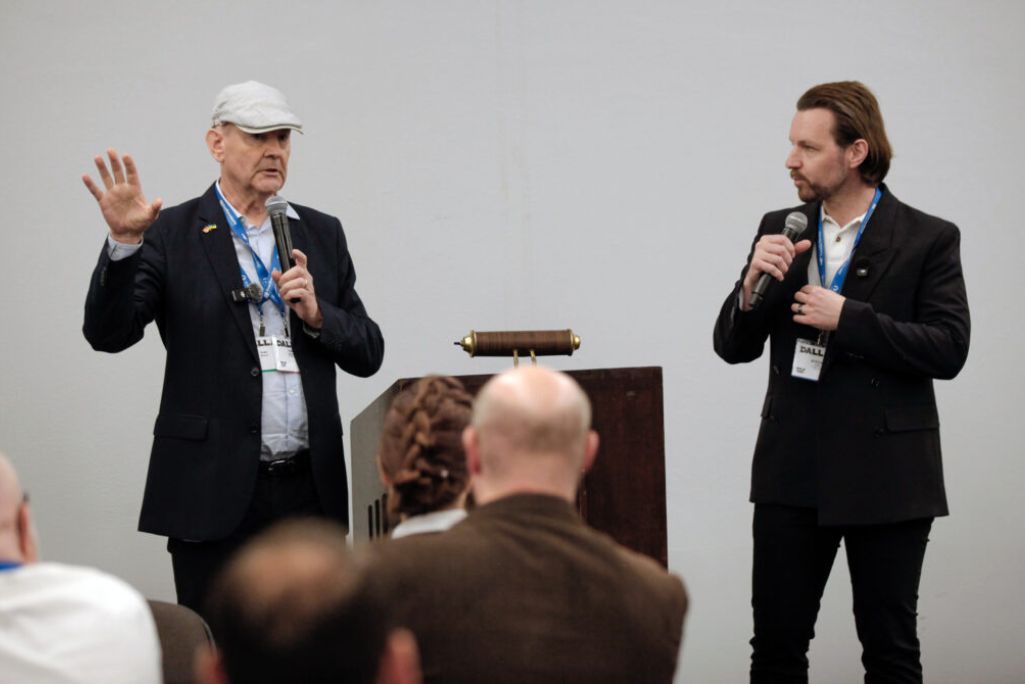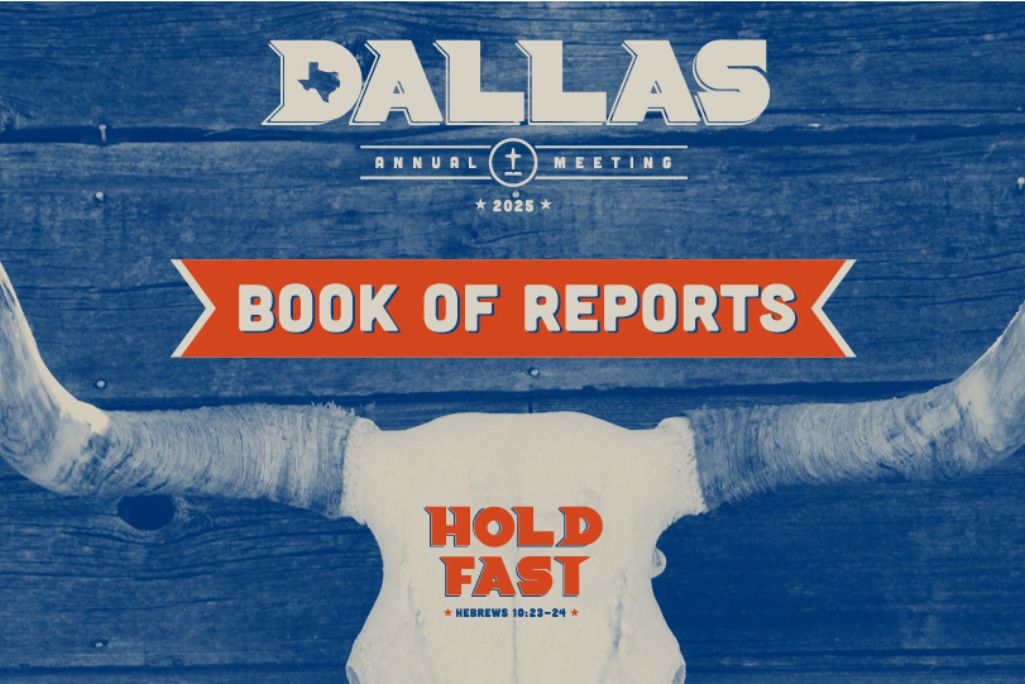
Ivan Mileyev (left), president of the Pacific Coast Slavic Baptist Association, addresses the first gathering of Slavic Baptists from around the U.S. on Tuesday, June 10. Bogdan Kipko of Forward Church in Irvine, Calif., provides translation.
DALLAS — After an initial low-key foray last year into the collective heart of the Southern Baptist Convention (SBC), more than 100 Slavic pastors and leaders from across the nation gathered on June 10 for their first annual meeting as an as-yet unformalized fellowship group.
They gathered for a dinner event at the Kay Bailey Hutchison Convention Center in conjunction with the SBC’s 2025 annual meeting.
“This is historic,” Ivan Mileyev announced as he looked across the crowded double-size room. “We planned for 35 people.”
Mileyev is president of the Pacific Coast Slavic Baptist Association, which is now in its 87th year. It is one of seven regional Slavic Baptist associations across the nation. He coordinated the event last November in consultation with leaders from the six other Slavic Baptist associations across the United States.
Slavic people stem from central and eastern Europe; they predominantly speak Russian and Ukrainian. Both languages were heard at the first annual Slavic dinner. Bogdan Kipko of Forward Church in Irvine, Calif., frequently was called upon to translate.
Several leaders from the International Mission Board (IMB) and North American Mission Board (NAMB) were onsite to explain how they could help resource Slavic churches, and Charles Grant, the SBC Executive Committee’s (EC) associate vice president for convention partnerships, brought greetings.
“This is a fabulous occasion, an historic occasion so God can get the glory in all you do,” Grant told attendees. “Build the kingdom as you build yourself in the name of Jesus Christ.”
Ramon Osorio, director of Ethno-Linguistic Church Planting for NAMB, facilitates Send Network’s efforts to plant churches among ethnic/language groups throughout North America. His job, he explained, is to connect the expertise of established churches with the energy of ethnic church plants.
John Bennett is the IMB’s director of diaspora mobilization — dmcollective.org — which helps cast vision, mobilize and equip Southern Baptist churches to engage people groups globally and fulfill the core missionary task among diaspora people groups “who reside in our own neighborhoods,” Bennett said.
The Diaspora Missions Collective combines the efforts and resources of IMB, NAMB, Send Relief and Woman’s Missionary Union (WMU).
“We are compelled by Christ to love and share the good news to immigrants, refugees and international students,” Bennett said. “As they come to know Christ, they too will share the gospel where we’ve not been able to go, literally becoming gateways for spreading the gospel into their homelands.”
An IMB missionary in Central Europe unnamed for security reasons had this to say: “The greatest problem facing Europe is not the wave of undocumented immigration. It’s lostness.”
Slavic leaders from Boston, Mass. to Long Beach, Calif. networked with each other and with the Diaspora Missions Collective staff while awaiting the dinner, which was delayed, perhaps, because of the attendance increase.
“Some came here checking out the SBC,” Bennett told Baptist Press.
One of those was Oleg Xu, Kazakhstan-born English pastor of Chinese Baptist Church in Houston.
“I came to speak Russian,” Xu said. “I wanted to meet other Russian speakers.”
Diaspora Missions Collective and Slavic leaders spoke of the need for and the blessing of being unified in the task of reaching the United States, Slavic nations and the world with the gospel; raising up the next generations “to take the gospel to the United States, Canada and the rest of the world;” as well as starting churches wherever God opens doors.
According to the 2020 U.S. Census Bureau, more than 4.2 million people of Slavic descent live in the United States, making up about 1.4% of the population.
In 2018, New York had the highest number of Slavic Americans with a population of more than 1 million, followed by Pennsylvania with nearly 850,000 and Illinois with almost 710,000. Other states with large Slavic populations include Ohio, Michigan and California.
The SBC is home to 106 Slavic congregations in 27 states.
The oldest Slavic Baptist church — Bryte Church — is more than 100 years old, though it didn’t join the SBC until 1963. It was started by Ukrainians, though today Russian is the language spoken. The last name of the pastor who started the church, according to Xu: Zelensky, same last name as the current Ukrainian president.
Prayers in either Russian, Ukrainian or English, dinner and a group photo concluded the first official Slavic event.
No business was transacted during the gathering. The next year is to be spent building relationships among the seven regional associations to build the Slavic Baptist Fellowship, Mileyev said.
“We’re confident this will grow,” he said. “May this be a day we celebrate because many more will come to know (God) as a result.”
(EDITOR’S NOTE — Karen L. Willoughby is a national correspondent for Baptist Press.)


